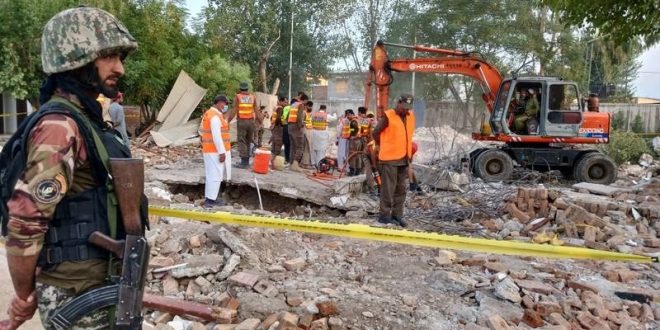Pakistan becoming another Afghanistan as ISIS violence surges

KABUL – In recent times, Pakistan’s security forces have found themselves grappling with a disturbing surge in violence attributed to ISIS. The nation has been shaken by a series of bombings claimed by the terrorist organization, resulting in dozens of casualties and targeting innocent worshippers in mosques. This ominous trend has raised new concerns regarding the security landscape in Pakistan.
Previously, the primary focus of Pakistan’s security forces had been on the Tehreek-e-Taliban Pakistan, the local affiliate of the Afghan militant movement. This came in the wake of a wave of attacks following the breakdown of ceasefire talks between the government and the group in November of the previous year.
Adding to the complexity of security challenges, Baloch insurgents, along with the Taliban, have been accused of targeting Chinese workers and diplomats. This threat has been steadily growing, especially in the rugged and often mountainous regions of northern and eastern Pakistan. In this context, ISIS has found opportunities to exploit the existing chaos.
ISIS has notably gained significant attention, overshadowing other militant groups operating within Pakistan. The latest incidents, occurring just last Friday, saw two suicide bombings. One horrific attack in Balochistan claimed the lives of 55 people and left numerous others injured. Simultaneously, another attack in the Hangu district of Khyber Pakhtunkhwa province resulted in five fatalities and 12 wounded.
A senior security official raised concerns about the identity of one of the suicide bombers in Hangu, whose fingerprints did not match any records in Pakistan, hinting at the possibility of foreign involvement. The official emphasized the formidable challenge posed by suicide bombers due to their mobility and the potential to detonate explosives even if intercepted.
The chaotic withdrawal of US and Afghan forces from Afghanistan has further complicated Pakistan’s security situation. The departure of US forces left behind a substantial cache of modern weaponry, including night vision equipment, which has fallen into the hands of various militant groups, intensifying the challenges faced by security forces. A significant incident in June illustrated ISIS’s proficiency in utilizing captured technology.
In June, an unidentified motorcyclist shot and injured an intelligence agency officer, triggering a confrontation with the police. The subsequent investigation uncovered mobile phones, a pistol, an Afghan citizenship card, and a Bus Rapid Transit card for use in Peshawar among the attacker’s belongings. This incident led to the dismantling of an ISIS network.
Inspector General of Police in Khyber Pakhtunkhwa, Akhtar Hayat Khan, emphasized the geographical proximity of his province and Balochistan to Afghanistan as a key factor in the region’s vulnerability to terrorist incidents. He noted significant breakthroughs achieved by the Counter Terrorism Department in recent operations.
Additionally, tribal affiliations among militants and the long-standing presence of Tehreek-e-Taliban Pakistan strongholds have contributed to the region’s volatility. This movement has been engaged in conflict with the Pakistani government since approximately 2007.
culled from Afghanistan Times

